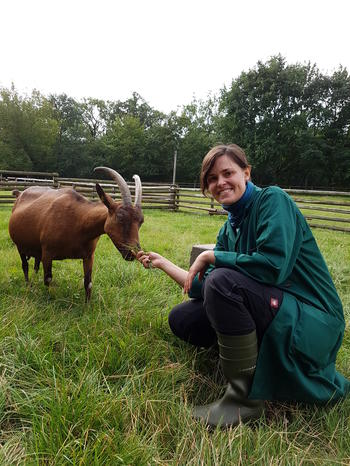Dr. med. vet. Franziska Sutter

Fachbereich Veterinaermedizin
Tierklinik für Fortpflanzung
Researcher
veterinarian
14163 Berlin
Development and use of standard operating procedures (SOP) and a benchmarking system to promote and optimise calf health
Calf health is an essential factor for successful rearing and prosperous dairy cattle farming. It sets the course for the future performance of the herd. The development of calves in their first few hours and weeks of life is crucial.
Calves are born without an own active immune system. They are largely unprotected against infectious agents at birth. Because of the placenta epitheliochorialis of cattle, which does not allow immunoglobulin transfer via the placenta to the fetus, calves are born without immune protection. Therefore the neonate is completely dependent on the absorption of immunoglobulins from the colostrum, because the maternal antibodies are resorbed into the bloodstream. The passive transfer of the antibodies via the small intestine is possible within the first 24 hours of the calf's life. The first milking is particularly rich in immunoglobulins, the following milking does not reach this high concentration of antibodies. The closure of the calf's blood-intestinal barrier occurs as a linear declining process, 6 hours after birth the passive transfer from the intestine to the blood decreases steadily until it stops completely after 24 hours. Nevertheless the administration of colostrum in the first week of life is important for the binding of pathogens in the intestine and for the further development of the calf. High and specifically effective antibody levels in the blood of calves are therefore the basis for healthy rearing.
The establishment of a benchmark system for colostrum supply and rearing cattle is intended to provide an incentive to optimise calf health. It should serve as a basis for achieving better breeding results and reducing the calf mortality rate. The aim is to ensure calf health by developing standard operating procedures (SOP) as a guideline for the optimal supply of calves.